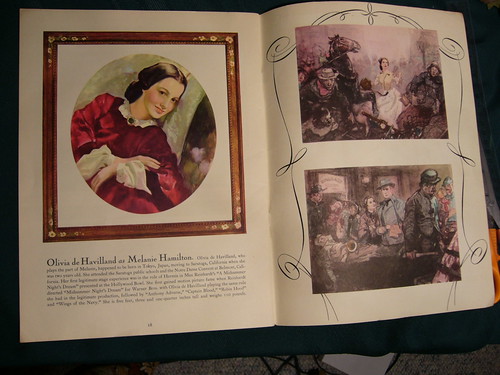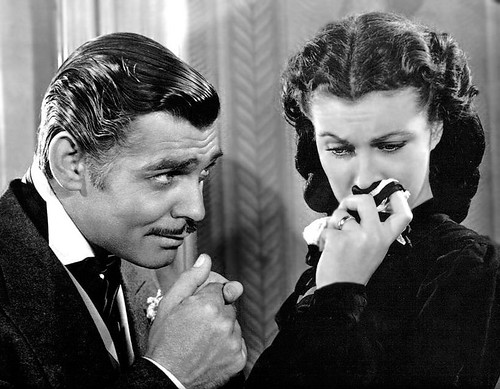Some phrases are so common that we never even think twice about them...not even when we have to write them down. Is Christie a shoe-in for Prom Queen? Or is Edward a shoo-in to win the election? Should I wrack my brain to find the answer...or rack yours? The most common and oft-heard phrases can be the worst ones to spell. Now, find out whether I have a deep-seeded or deep-seated love of proper grammar...
Improper Phrasing
Microsoft Word, and other computer spell-checkers, may not catch your mistakes when you're writing your phrases incorrectly. Because all the words are still spelled the right way, the automatic checkers may not realize that you're actually not making any sense whatsoever. Make sure you double-check your phrases, even the ones you think are very common, because you might be surprised by how often you're actually getting it wrong.
- Shoo-in/Shoe-in. The phrase means something like "a certain victory," though it's always used with a noun (like I did in the examples at the top of the post). The only correct way to write it is shoo-in. It's derived from an old racing term, actually -- something about "shooing in" the winning horse at the track across the finish line. Shoe-in means nothing, because shoes go on your feet; they don't go in them.
- Wrack/Rack my brain. When you wrack or rack your brain, you're trying to think of or remember something -- like maybe the correct spelling of a common phrase. The phrase rack my brain is especially hard, because both rack and wrack have distinct meanings. Wrack was once used to describe wrecked ships, but today it usually refers to seaweed. A rack is a framework of some sort, used to display or store various items. The phrase rack my brains is derived from the use of the rack in torture. Try to remember that racking your brains is torture, and it'll be easier to remember the correct usage of this phrase.
- Deep-seeded/Deep-seated. When something is deep-seeded or deep-seated, it usually refers a firm conviction, principle or belief. Both phrases look like they could make sense. Deep-seeded sounds like it means planting something deeply, but it actually means nothing at all. Deep-seated is the phrase you're looking for, though this is probably the most improperly used of all the phrases on my list. Even respectable publications get this wrong all the time.
The above phrases are the ones that have, historically, troubled me the most. While looking around the Internet, I found several more:
- For all intensive purposes. The phrase sounds, and looks, like it would make sense. Intensive comes from the word intense, which means passionate or earnest. Saying for all intensive purposes might sound like your motivations are strong and deeply-felt, but it's an improper turn of phrase. For all intents and purposes is the phrase that's actually used. Intent means there's a plan in place, so when you say for all intents and purposes, you're saying practically, yes. You aren't saying anything if you use the other, improper, phrase.
- Home in/Hone in. Do you hone in or home in on something when you're writing phrases? Both sound like they might work. Home is where you live, hone is a tool you use to sharpen a blade. But you are not a bee, so you can't home in. You can only hone in, which means that you're concentrating sharply and intensely focusing on a goal.
- Moot point/Mute point. Am I making a moot point, or a mute point, when I write about grammar (I hope not!)? Mute is in everyday language, and you know it means to completely silence something. Moot means that conversation is null and void, so of course the phrase you're looking for is moot point. The other choice, mute point, doesn't exist -- even if it sounds like the action you have to use to quiet the TV.
- Tongue and cheek/Tongue in cheek. Don't let an improper conjunction make your writing look silly! The correct phrase is tongue in cheek, which means to subtly poke fun at something (usually through sarcasm). Tongue and cheek is the stuff that creates your mouth.
- Escape goat/Scapegoat. This is my personal favorite among the incorrect common phrases, because it's hilarious. A scapegoat is the hapless victim in a plot, the person who ends up taking the fall for the real perpetrators of a crime or feat of misbehavior. An escape goat is a specially-trained magician goat who performs at county fairs -- or, it's just an improperly used phrase that means nothing at all.
Common phrases are deceptive, because they're used quite often in conversation -- but that doesn't make them easy to spell. If there's more than one way to spell a phrase, take the time to double-check yourself and be certain you're getting it correct. Otherwise, the escape goat might come along and gobble up all your readers.



























